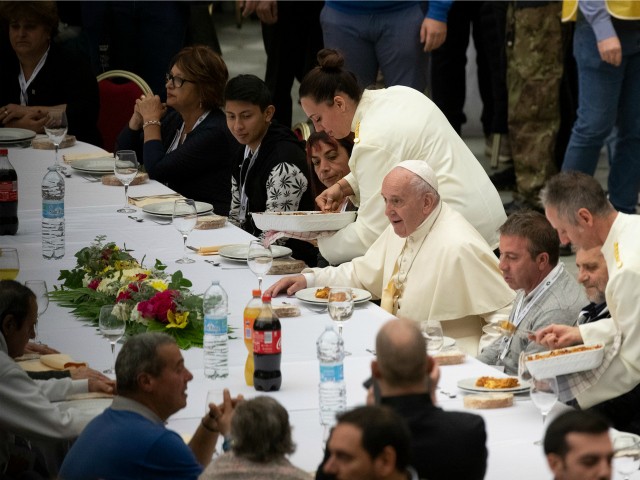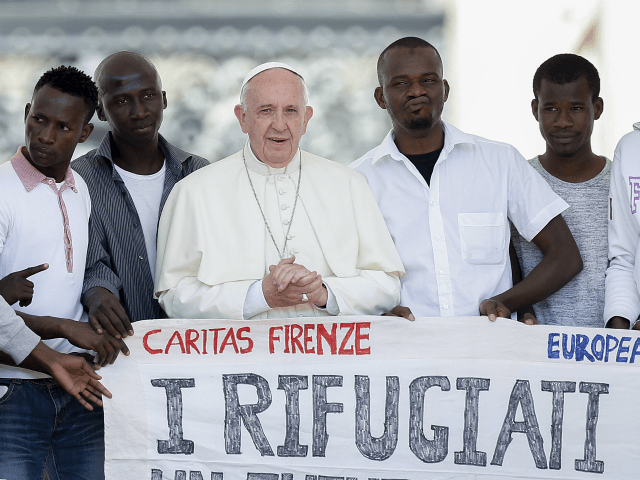ROME — Jesuit Cardinal Michael Czerny downplayed the immigration issue prior to European elections, insisting that it is “false” to speak of a global crisis.
The Canadian Cardinal, who runs the Vatican’s office for promoting “Integral Human Development,” contended that “propaganda or ideology” often give the impression that migrants embark on their journeys “for the pleasure of it or for adventure.”
“This is false, false, and false,” he argued, speaking at the launch of Pope Francis’ yearly message for migrants and refugees.
Asked how the issue should affect the European vote, the cardinal said that people need to humanize the topic, for example by saying “migrants” instead of the more abstract “migration.”
“This already helps,” he added. “Calling migration a global crisis is false.”
In his response, the 77-year-old prelate also said it would help for Europeans to remember their own migratory origins.
“It would be useful to remember the European migratory roots. It’s a shame that after a couple of generations we have forgotten them,” he stated.
The Vatican is looking to change people’s perspective on mass migration by highlighting positive stories to replace the negative accounts that dominate the media.
In the past, Czerny has said that the Church needs to “change the narrative” on immigration, because “the public view is negative” whereas it should be positive.
“We need positive stories,” Czerny said, in order to help people appreciate the benefits of migration instead of always focusing on its problems.
The pro-immigration, George Soros-funded lobby group Carta di Roma has similarly lamented the frequency with which the word “migrant” appears in newspaper headlines, stoking people’s fears of immigration when they should be embracing it.
The group has sought to purge journalistic language of all references to migrants that could carry a negative connotation, including such terms as “illegal immigrants.”
A list of taboo terms related to immigration proposed by Carta di Roma include expressions that underscore the ethnicity of certain migrant groups or their illegal status. Terms like “clandestini” (clandestine migrants), “zingari” (gypsies), “nomadi” (nomads), “extracomunitari” (those coming from outside the European Union) should never appear in news stories, the group declared.

File/Pope Francis sits at a table during a lunch, in the Paul VI Hall at the Vatican, Sunday, Nov. 17, 2019. Pope Francis is offering several hundred poor people, homeless, migrants, unemployed, a lunch on Sunday as he celebrates the World Day of the Poor. (AP Photo/Alessandra Tarantino)
Even precise terms such as “Albanian,” “Maghrebi” and “Chinese” should be excluded from news reports, the association contended, because today, such terms “are no longer neutral.”
The group also insisted that the ethnic origin of perpetrators of crimes should not be mentioned in news stories so as not to create an association of malfeasance with migrants.
“Islamic extremists” should simply be referred to as “extremists,” their guide declared, to avoid stirring up prejudice against Muslims.
Cardinal Czerny has said there is a natural tendency to “scapegoat” migrants and people who are different from us, especially when we are suffering political, social and economic unrest.
The prevalent negative narrative on the migration issue has nothing to do with migrants and refugees, who have “enormously enriched” modern societies, Czerny has argued, but reflects “a misplaced disappointment with our leaders.”
Migrants and refugees “are being scapegoated,” he said. “So, I think by telling the truth and by telling positive stories, that’s how I hope we can reverse that narrative.”

COMMENTS
Please let us know if you're having issues with commenting.